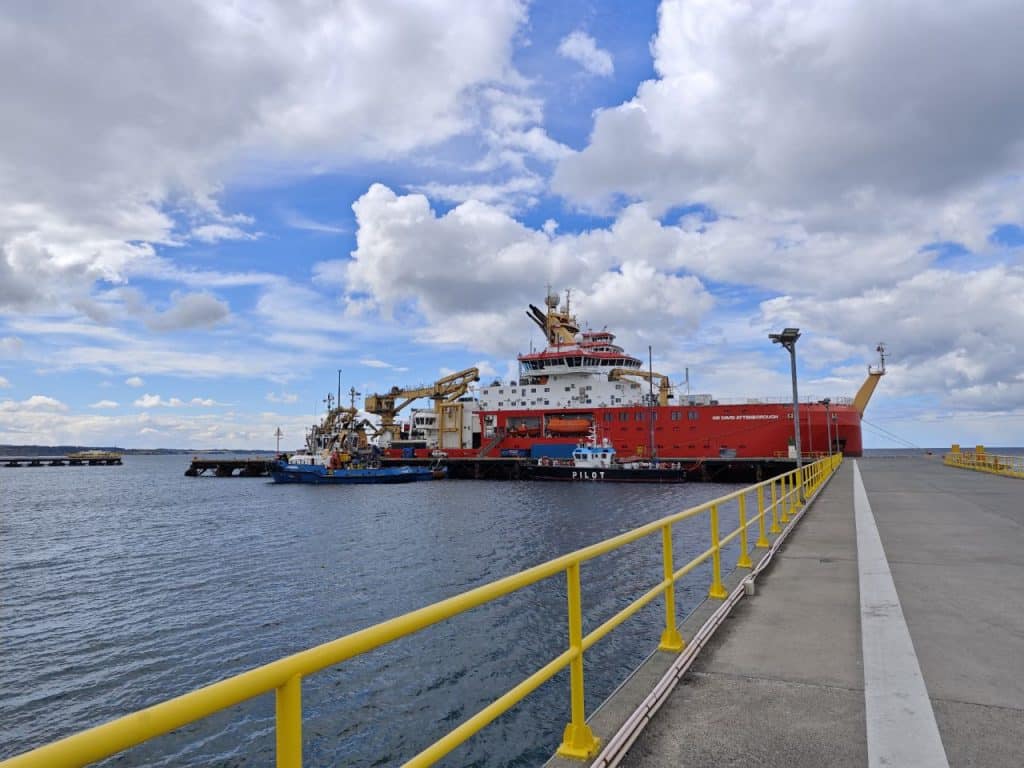Elodie Jacob, a MIO MEB doctoral student, is currently taking part in a British campaign in Antarctica.
As part of her thesis, she is supervised by Christian Tamburini (MEB team) in collaboration with Vincent Grossi (CEM team), Dan Mayor and Kathryn Cook from the University of Exeter as part of the H2020 OceanICU, ANR APERO and LEFE CYBER HPZ projects.
On 5 February, Elodie Jacob set off from Punta Arenas (Chile) for an eight-week campaign to gather data that would help her tackle her problem: the effect of pressure on the physiology of zooplankton.
The team is working on a project to better understand carbon storage by the biological pump and the physiology of zooplankton, which play a key role in this process. Some zooplankton, particularly copepods, migrate to depths of 1,000 metres or more to overwinter. These animals convert a large part of their food into fat reserves (lipids) during the spring and summer, in preparation for winter. When they are sufficiently fat, they descend to a depth of more than 1000m, where it is cold and dark, to spend the winter. Like polar bears, copepods feed on their lipid reserves during the winter.
This seasonal vertical migration of fat-rich copepods transports a significant amount of carbon into the deep ocean, representing a crucial, yet poorly understood, component of the global carbon cycle. The team is therefore studying how these organisms use lipids to regulate their buoyancy and how their metabolic rates are affected by pressure.
Thanks to this collaboration, Elodie Jacob has been able to take part in the BIOPOLE programme, which brings together various British organisations, including the British Antarctic Survey, which is hosting her on its vessel, the Sir David Attenborough. With the HP team's hyperbaric equipment on board, she will be able to simulate the pressure of 1000m and examine how this affects the oxygen consumption rate and lipid composition of copepods. Given that these animals live in the icy waters of the Southern Ocean, they have set up a temperature-controlled laboratory, just above zero degrees Celsius, which will be their base during the campaign.
The team headed for South Georgia in the South Atlantic, before descending to the Weddell Sea bordering Antarctica. They may even come across the world's largest iceberg, 'A23a', on this voyage.





